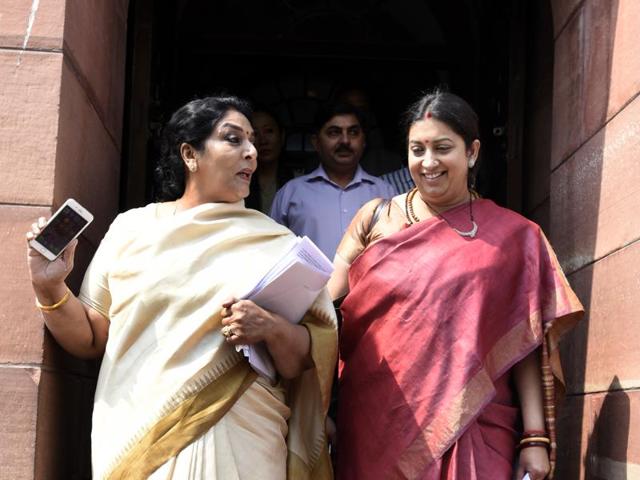Politicians must walk the talk on women’s reservation bill
Are male politicians afraid that women’s participation in public life will bring about a paradigm shift in governance systems?
The NDA government’s plan to push for a constitutional amendment in Parliament to reserve 50% seats for women in panchayats and municipalities is a great idea. In 1992, the House reserved one-third seats in the local bodies for women. It is unfortunate that it has taken so long for MPs to realise that women, who constitute 48% of the population, have the right to be in decision-making positions.

The history of women’s reservation began in the 1980s with the Karnataka Zilla Parishads, Taluk Panchayat Samitis, Mandal Panchayats and Nyaya Panchayats Act, 1983, reserving 25% seats for women, making it the first state to do so.
Read | On Women’s Day, Sonia seeks early passage of women’s reservation Bill
At that time, many said seats will go vacant due to lack of candidates. However on an average three women contested for one seat when the elections were held in 1987. Orissa implemented 33% reservation much before the 73rd Constitutional Amendment. It also decided that if a sarpanch (elected or nominated) was a man, then his deputy will be a woman.
The 64th and 65th constitutional amendments that Prime Minister Rajiv Gandhi introduced in Parliament on May 15, 1989, reserved 30% seats for women. But the Bills were defeated in the Rajya Sabha. When the National Front came into power in 1989, reservation for women increased to 33%. But it was the Narasimha Rao government that passed the Bill. In the 72nd and 73rd constitutional amendments introduced in September 1991 (which became the 73rd and 74th in 1992), the reservation did not go up further; it remained at 33%. In 1993, it became part of the Constitution.
Read: PM bats for empowering women but no mention of reservation Bill
Thanks to the amendments, women joined politics in large numbers, changing the scope of political debate and ideas like gender-budgeting were popularised.
Bihar took a step forward in 2009 by reserving 50% seats for women in local governments. Seventeen other states followed.
But attempts to introduce 33% reservation for women in Parliament have failed. In 1996, the 81st constitutional amendment Bill for 33% seats for women in Parliament was introduced in the Lok Sabha. It was reintroduced in 1998 as the 84th amendment and again in 1999. In 2003, the Bill failed to clear the House twice. Finally, in 2010 it was passed in the Rajya Sabha but is still pending in the Lok Sabha.
Political will is necessary to ensure reservation for women in assemblies and Parliament.
Are male politicians afraid that women’s participation in public life will bring about a paradigm shift in today’s governance systems?
Read: PM Modi, walk the talk on women empowerment
This is unfortunate because there are enough examples ---- Kerala, Goa, Tripura, and Mizoram ---- to show how society benefits from empowering women.
George Mathew is chairman, Institute of Social Sciences, New Delhi



